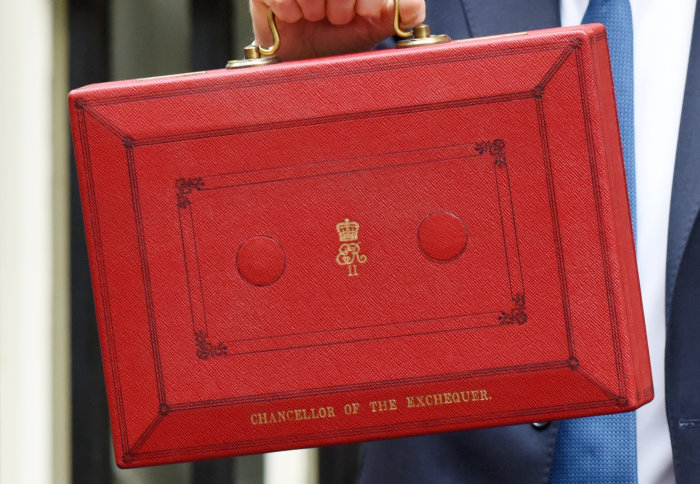As the end of the tax year approaches (5th April), it’s time to take a proactive approach to managing your finances and simplify your tax year. With the ever-changing landscape of tax regulations, it’s crucial to stay informed and plan ahead to optimise your financial position.
In this article, we’ll explore seven simple and easy strategies to help you make the most of your tax allowances before the end of this tax year and also help you prepare for the year ahead.
1. Utilise Your Capital Gains Tax Allowance:
The annual Capital Gains Tax (CGT) allowance provides an opportunity to realise gains on your investments without incurring tax. We saw this allowance take a step down from £12,300 to £6,000 at the start of this tax year, and it’s set to fall to £3,000 from next year! Take the time to review your investment portfolio and consider selling assets to make the most of this allowance before the tax year ends. By strategically managing your capital gains, you can minimise your tax liabilities and potentially optimise your investment returns.
2. Maximise Your ISA Allowance:
ISAs (Individual Savings Accounts) remain one of the most tax-efficient ways to save and invest. With the recent changes to capital gains tax and dividend tax allowances, utilising ISAs has become even more advantageous. By contributing to Cash ISAs or Stocks and Shares ISAs before the end of the tax year, you can benefit from tax-free growth on your savings and investments, shielding your returns from tax liabilities.
3. Boost Your Pension Contributions:
Planning for retirement is essential, and contributing to a pension scheme offers significant tax benefits. By maximizing your pension contributions before the tax year ends, you can benefit from tax relief on your contributions and potentially reduce your overall tax bill. It’s a simple yet effective way to bolster your retirement savings while minimizing your tax liabilities.
4. Make the Most of Marriage Allowance:
For married couples or civil partners, transferring unused personal allowance can result in tax savings. You are likely to be eligible if one of you earns below £12,570 as a nil rate tax payer and the other below £50,270 as a basic rate tax payer. By utilising the Marriage Allowance, you can reduce your overall tax bill and maximise your household’s tax efficiency. It’s a simple yet often overlooked strategy for couples managing their finances together. You can backdate it 4 years (to 2019/20) if you were eligible! Take a look at how it works here – on the gov.uk website
5. Consider Gift Aid Donations:
Supporting charitable causes not only makes a positive impact on our community wellbeing, but it can also provide tax benefits. By making Gift Aid donations before the end of the tax year, you can ensure that charities receive additional funding, while benefiting from tax relief on your donations! It’s a win-win situation that allows you to support causes you care about while reducing your tax liabilities.
6. Save for Your Child’s Future with Junior ISAs:
If you have children, don’t forget to consider Junior ISAs as a tax-efficient way to save for their future. By contributing to a Junior ISA before the end of the tax year, you can benefit from tax-free growth on your savings, providing a financial head start for your child’s future endeavours. You can pay in up to £9,000 this tax year!
7. Explore Inheritance Tax Gifting Allowances:
Inheritance Tax (IHT) gifting allowances provide opportunities to pass on wealth tax-efficiently. Consider making use of your £3,000 annual gifting allowance, as well as other exempt gifts to reduce the value of your estate and potentially minimise the impact of IHT for your beneficiaries. Did you know that, in addition to the £3,000 annual gift exemption, you can give an IHT exempt gift of £5,000 to a child, £2,500 to a grandchild or £1,000 to any other person for a wedding or civil partnership? There are many other gift exemptions, so do speak to your financial planner if this is an area of concern.
The end of the tax year presents an opportunity to review your finances and take advantage of available tax allowances and reliefs. However, navigating the complexities of tax regulations can be challenging, which is why having a trusted financial planner by your side is invaluable. At Ovation we can help you stay on top of changing regulations, optimise your tax planning strategies, and ensure you’re making the most of available opportunities.
Contact Ovation to help Simplify Your Tax Year
The information in this article is not individual financial advice – take a proactive approach to manage your finances and call the Ovation team on 0117 942 4333 or fill out our online form.
Simplify your tax year and set yourself up for financial success in the year ahead.
The information contained within this article is not individual financial advice and for information only. It is based on our understanding of legislation, whether proposed or in force, and market practice at the time of writing. Levels, bases and reliefs from taxation may be subject to change.
The value of your investments can go down as well as up, so you could get back less than you invested.
Past performance is not a reliable indicator of future performance. The Financial Conduct Authority does not regulate tax and estate planning.








